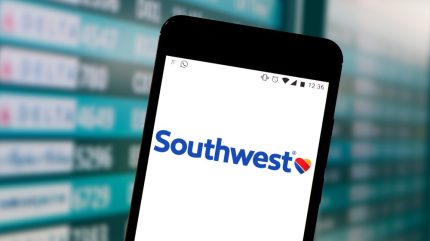
US low-cost airline Southwest has enacted a Shareholder Rights Plan in a fightback against Elliott Investment Management, an activist investor that revealed a plan to bring change to the airline from within.
Elliott made its $1.9bn stake in Southwest public knowledge in June, and said it would demand a change of business tactics and board leadership. The stake equates to approximately 11% of the airline company.
The activist fund is headed up by Paul Singer, and has stakes in powerful firms across many sectors and geographies. It is estimated to manage more than $70bn for its clients.
In reaction to the share ownership revelation Southwest said it was instituting the plan after it made “a good faith effort to engage constructively with Elliott Investment Management since its initial investment.”
“In light of the potential for Elliott to significantly increase its position in Southwest Airlines, the Board determined that adopting the Rights Plan is prudent to fulfill its fiduciary duties to all Shareholders,” explained executive chair of Southwest’s board, Gary Kelly.
Poison pill
The plan is known as a ‘poison pill’ in financial circles because it is intended to make taking a controlling stake in the company distasteful for the investor.
Southwest plans to do this by creating “rights” for its current shareholders. These “rights” will run for one year, and will be “exercisable” if any one shareholder or official group (under US Securities law) gains shares in excess of 12.5% of the company.
At that point, rights holders will be able to buy Southwest shares at a 50% discount – all shareholders except those with more than a 12.5% stake, whose rights will be voided by the Plan.
This will have the effect of making a controlling stake in Southwest double as expensive for Elliott. The current board hope it will be prohibitively so.
Call and response
The fight for control of the airline was prompted by a letter from Elliott to the Board which accused it of responsibility for “Southwest’s poor execution and leadership’s stubborn unwillingness to evolve”.
“Southwest’s rigid commitment to a decades-old approach has inhibited its ability to compete in the modern airline industry,” it added. This relates to Southwest’s generous free baggage policy, which is seen by many, including Elliott, as an outdated strategy that other US carriers have moved on from.
Elliott called for an “enhanced board” and “upgraded leadership”, which effectively means replacing Kelly and CEO Bob Jordan.
But the current board has rejected these pleas with the Shareholder Rights Plan, and Jordan’s indication that the airline would not drop its two-bags-free policy as it remains popular with customers.



